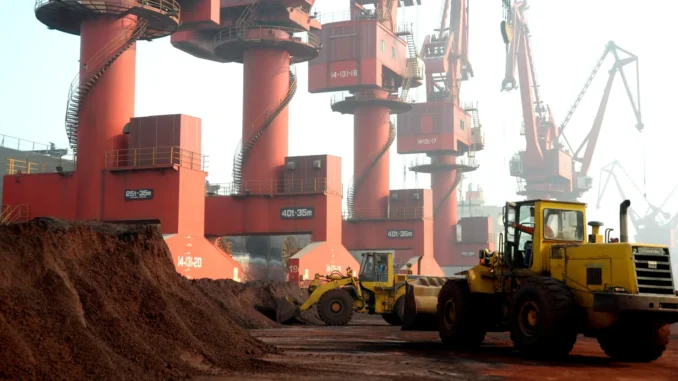
In a world increasingly dependent on rare earth elements and critical minerals for everything from electric vehicles to wind turbines and defense technologies, Europe finds itself in a precarious position. Despite boasting significant deposits across the continent, including in Turkey, Sweden, and Norway, the region remains overwhelmingly reliant on China for supply. This vulnerability, highlighted in a recent CNBC report, underscores a broader global bifurcation in energy and industrial policies: one path leading to deindustrialization and fiscal strain under strict Net Zero mandates, and another embracing low-cost energy sources to fuel growth and self-sufficiency.
Europe’s Untapped Wealth and China’s Dominance
Europe’s rare earth reserves are no secret. Deposits in countries like Sweden and Norway hold promise for reducing external dependencies, yet the continent lacks the infrastructure, expertise, and operational mines to extract, refine, or process these materials at scale.
According to the International Energy Agency (IEA), China controls 59% of global rare earth mining, 91% of refining, and a staggering 94% of permanent magnet manufacturing as of 2024.
Europe, in contrast, imports around 70% of its rare earths and nearly all of its rare earth magnets from China, leaving it exposed to supply disruptions and geopolitical tensions.
This dependence isn’t just a matter of geology—it’s a policy failure. Willis Thomas, principal consultant at CRU Group, notes that while there are likely more deposits in Europe, “there are barriers to bringing that online,” including lengthy approval processes, stringent environmental regulations, and public opposition.
China’s decades of investment and streamlined operations have given it an unassailable lead, further solidified by export controls and licensing requirements imposed in 2024 and 2025, though temporarily suspended amid a U.S.-China trade truce.
The European Commission’s response, the “RESourceEU” plan, aims to diversify through recycling, joint purchasing, stockpiling, and investments in domestic production. Partnerships with nations like Canada, Australia, and Chile are part of this effort, and Europe’s first rare earth magnet plant opened in Estonia in September 2025, sourcing materials from Australia and Malaysia.
Yet, as European Commissioner Valdis Dombrovskis warns, “we are depending more than 90% on China’s supplies,” and the suspension of controls merely buys time.
Net Zero Policies: A Double-Edged Sword for Critical Minerals
Europe’s predicament is exacerbated by its aggressive pursuit of Net Zero goals, which drive up demand for critical minerals while simultaneously stifling domestic development. The European Climate Law’s target of net-zero emissions by 2050 has amplified the need for materials like lithium, cobalt, and rare earths for batteries, renewables, and digital infrastructure.
However, the same environmental standards that underpin Net Zero—such as rigorous permitting and socio-environmental impact assessments—have made mining and refining within Europe prohibitively slow and costly.
This pattern extends to the UK and Canada, both of which have aligned with Net Zero ambitions but face similar hurdles. The UK’s Critical Minerals Strategy acknowledges reliance on fragile global supply chains to meet surging demand for its net-zero transition, yet domestic mining has stalled.
The country has deposits of critical minerals but has largely ceased extraction, with experts warning that without action, the UK risks missing out on its assets.
In Canada, the Critical Minerals Strategy, backed by nearly $4 billion in funding, positions the country as a global supplier, but Net Zero-driven regulations have limited refining and manufacturing expansions.
Collaborative efforts between the UK and Canada, including research partnerships to enhance sustainable mining, highlight attempts to address these issues, but progress remains hampered by environmental constraints.
Critics argue that these policies prioritize ideological goals over practical energy security. In the EU, carbon taxes under the Emissions Trading System and border adjustment mechanisms have accelerated deindustrialization, pushing manufacturing overseas—often to China, where emissions standards are laxer.
Germany’s industrial collapse, with estimates of 300,000 to 400,000 jobs lost, serves as a stark example of Net Zero’s unintended consequences.
The Global Bifurcation: Net Zero vs. Energy Realism
As Energy News Beat has consistently highlighted, the world is splitting into two camps. On one side are nations clinging to Net Zero mandates, trading heavily with China, and sliding toward deindustrialization and fiscal collapse. Europe, the UK, and Canada exemplify this group, where renewables-heavy policies have led to energy fragility and economic strain.
The UK’s ban on new North Sea oil wells—the first year without new exploration since the 1960s—has been blamed on Labour’s crackdown, further eroding energy independence.
Similarly, ExxonMobil’s warning of a potential exit from Europe due to stringent EU laws underscores how Net Zero is driving away investment.
On the other side are countries prioritizing the lowest-cost forms of energy—often fossil fuels like oil, gas, and coal—to drive growth and industrialization. As global oil consumption hits record highs, defying “peak oil” predictions, this camp benefits from reliable, affordable energy to build resilient supply chains.
Former President Trump’s critique of wind and solar as a “blight” reflects a pushback against renewables in favor of a balanced U.S. energy mix that supports manufacturing resurgence.
Qatar’s warnings about LNG shortages expose the EU’s frail strategy, while analysts like Doomberg note that “the gloves are off with China,” signaling a realignment where Net Zero followers falter.
This bifurcation, as Nick Butler argues in The Telegraph, rebukes groups like Greenpeace for misunderstanding global trading blocs.
For Europe to escape China’s mercy, it must rethink the rigidities of Net Zero and embrace policies that enable domestic mineral development without sacrificing growth. Otherwise, the continent risks not just supply shortages but a broader economic decline in a divided world.
Buckle up as we are watching the world realign and trading blocs reborn. It will be interesting to see what transpires in the next six months.
Got Questions on investing in oil and gas?
If you would like to advertise on Energy News Beat, we offer ad programs starting at $500 per month, and we use a program that gets around ad blockers. When you go to Energynewsbeat.co on your phone, or even on Brave, our ads are still seen. The traffic ranges from 50K to 210K daily visitors, and 5 to 7K or more pull the RSS feeds daily.
https://energynewsbeat.co/request-media-kit/







